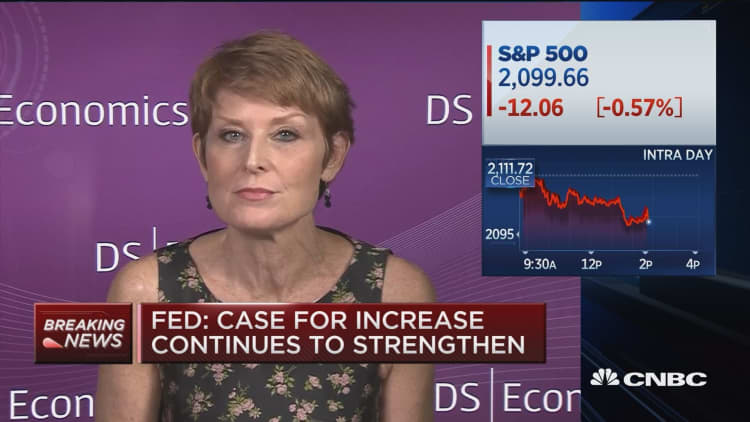
Uncertainty surrounding the election may have played a part in the Federal Reserve's decision not to raise rates, but that uncertainty will still be around after Election Day, economist Diane Swonk told CNBC on Wednesday.
The central bank held rates steady at its November meeting, and made no direct reference to a coming hike at its December meeting.
"The election does matter. We've got two open board seats" on the Fed, the founder and CEO of DS Economics said in an interview with CNBC's "Power Lunch."
That means whoever wins the presidency and whichever party controls the House and Senate will shape the central bank's governing board.
So if Yellen decides to raise rates in December and the Democrats control the Senate, they may put more dovish members on the board, Swonk explained. On the flip side, if Republicans are in control, there could be more hawks put in place.
"Janet Yellen, you can't just fire her, but the way to push someone out is with more hostile Fed governors on one side or the other," she said.
Plus, the markets may react negatively if Donald Trump wins, and that in turn could influence what the Federal Reserve does, said Scott Minerd, global chief investment officer for Guggenheim Partners.
"I don't want to say they won't raise, but I think the probability is that we will see turbulence in the market and that they will try to slow down," he told "Power Lunch."
— CNBC's Jeff Cox contributed to this report.


